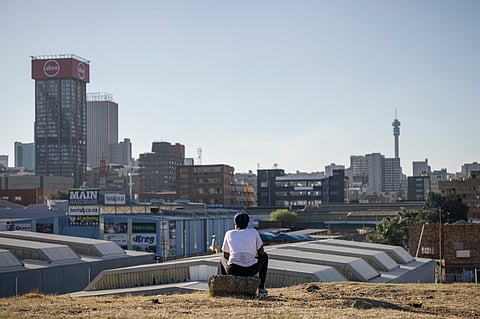A resident looks out towards the skyline of the central business district in Johannesburg, South Africa, on Tuesday, Aug. 15, 2023. The summit of BRICS leaders is scheduled to take place from Aug. 22-24 in Johannesburg, where theyll discuss whether to admit more nations to its ranks. Photographer: Michele Spatari/Bloomberg
Leadership
Jay Naidoo pt 4: Africa at the crossroads - Reclaiming our future in a fractured world
Africa must shift from extraction to transformation—investing in people, unity, and Ubuntu to reclaim its future from global powers.
Key topics:
Transformative leadership: From liberation nostalgia to servant leaders guided by Ubuntu and community.
Economic renewal: Local processing, education, and innovation to turn natural wealth into shared prosperity.
African sovereignty: A united, people-driven agenda in global arenas like COP and BRICS.
Sign up for your early morning brew of the BizNews Insider to keep you up to speed with the content that matters. The newsletter will land in your inbox at 5:30am weekdays. Register here.
Support South Africa’s bastion of independent journalism, offering balanced insights on investments, business, and the political economy, by joining BizNews Premium. Register here.
If you prefer WhatsApp for updates, sign up to the BizNews channel here.

